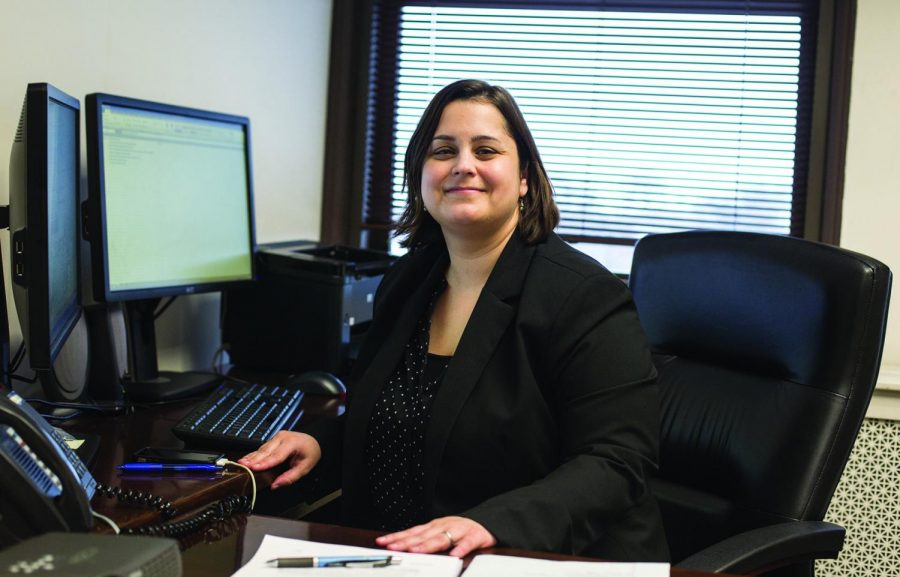AVP of Student Financial Services talks financial aid, payment plans
Cynthia Grunden, assistant vice president of Student Financial Services, joined the college on Feb. 2, 2015.
June 24, 2015
New students have many responsibilities to manage as they settle into their new college homes. Between organizing your move-in date, color coordinating your new bedroom and choosing which “Welcome Week” events to attend, figuring out how to pay for your time at Columbia might be a bit overwhelming.
However, the college’s Office of Student Financial Services is here to guide new and continuing students through the process of understanding all things financial aid.
The Chronicle spoke with Cynthia Grunden, assistant vice president of Student Financial Services, regarding incoming students’ most frequently asked questions when it comes to loans, payment plans and refunds.
THE CHRONICLE: What are the most common ways students pay for college?
CYNTHIA GRUNDEN: Students use many methods to pay for college, including federal and state grants, federal loans, institutional scholarships, third-party payments, Veteran’s benefits and payment plans. Most students use more than one payment method within a semester or academic year.
What is the Federal Stafford Loan and what is the difference between subsidized and unsubsidized loans?
Federal Stafford Loans are educational loans for students funded by the federal government. To receive a Stafford Loan, a student must be attending at least half-time. Stafford Loans do not require a credit check, and repayment on the loans begins six months after graduation or dropping below half-time enrollment. Students can opt to pay their loans before graduation, which will help them save money on interest. While a student is enrolled at least half-time, the government pays the student’s interest on a subsidized loan. An unsubsidized loan starts to accrue interest at the time it is disbursed. Eligibility for a subsidized loan is based on financial need.
How can students benefit from pursuing a Federal Direct Parent PLUS Loan? What types of students are eligible for this type of loan?
A Parent PLUS Loan is a loan that a parent of a dependent undergraduate borrows to help the student cover educational costs. The loan is funded by the federal government and requires a credit check of the parent borrower. Only the parents of dependent students are permitted to borrow a PLUS Loan. Independent undergraduate students cannot take advantage of this
program.
How should students go about setting up a payment plan?
All students who have charges that are not covered by financial aid or a third-party payment must pay the outstanding balance in full or establish a formal payment plan by Sept. 1 for the fall semester. The payment plan requires the authorized payer to sign an agreement authorizing a third-party to process a down payment, non-refundable payment plan fee and monthly installments on behalf of the college. For optimal payment plan terms, students and authorized payers are encouraged to sign up when payment plans become available July 1.
Can students get their tuition refunded if they do not complete a semester?
If a student drops his or her classes during the refund or add/drop period, he or she is entitled to a refund for those classes. If a student withdraws from any class after the refund period, he or she is responsible for paying the charges for that class. If a student has outstanding charges and he or she or an authorized payer has signed up for a payment plan, the plan will continue.








